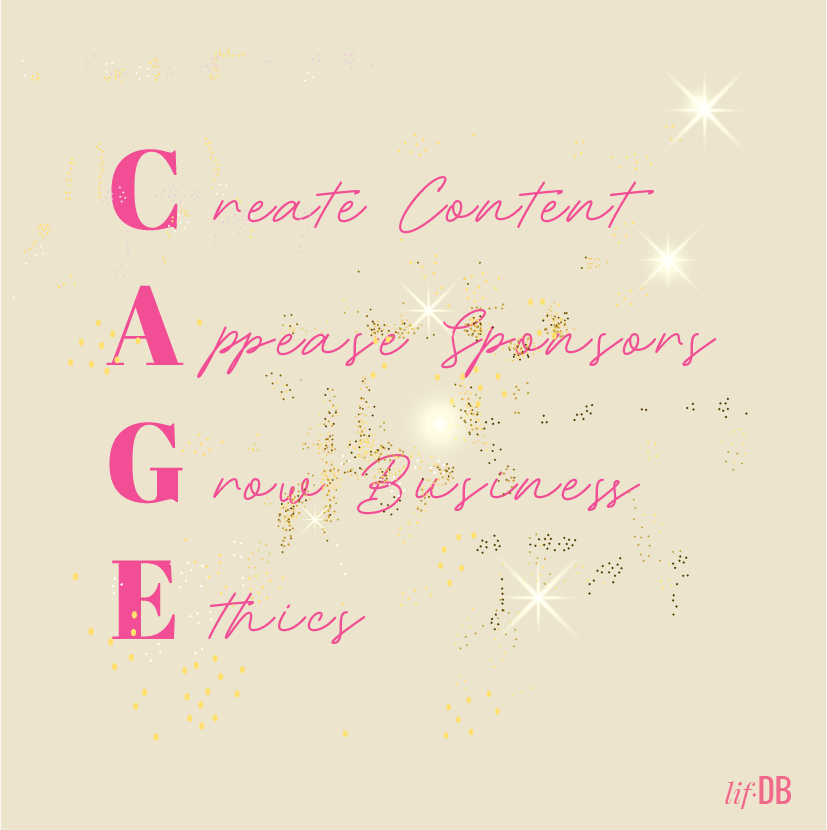In controlled experiments, white lab coats are meant to symbolize authority. Society associates this piece of clothing with credibility, especially when it comes to science and medicine. With the rise of wellness influencers, how figures of authority look, when it comes to health, are being redefined. In social media land, authority on wellness is youthful, clad in workout clothes, sipping a glass of green juice. It’s the age of wellness influencers. Aside from imparting health advise, you have to practice what you preach, or at least look like you do.
Beyond diet teas and workout routines, drug companies now use influencers to tout their products. There’s nothing new about drug makers paying individuals for advertising and promotion—physicians and pharmaceutical industries have always enjoyed a symbiotic relationship. But what has fundamentally changed is the shift from certified experts to personality-based individuals as a growing source of health advisors.
Certified Experts | Personality-Based

- Element of doubt: it’s highly unlikely to hear a 100% effectiveness on any treatment prescribed.
- Scientific process is central: findings tend to be based on research and trial error, not personal experience.
- Checks: the scientific community checks each other and builds up on shared knowledge. If there are results or findings that are dubious, other researchers will try to assess the robustness of a specific study.
- Expertise in the subject is key: for example, a nutritionist provides advice on nutrition and not necessarily workout routines.
- Evolution: ideas evolve as a result of continued testing.
Health guidelines continues to evolve as the tools we use to understand the world improve. An example is the categorization of acrylamide and the debate as to whether or not it’s a human carcinogen.
Currently, there’s no consensus on whether or not acrylamide causes human cancer and in what levels it’s considered harmful for us. But the important part is that the process of exploration continues and the scientific community acknowledges the work to be done.

- Certainty: whether it’s a paid promotion or you’re advertising your own brand, a less than 100% guarantee is less convincing, so there’s more incentive to over-hype.
- Lack of specialization: you can be a yoga instructor and give nutrition advice.
- Stories and personal experience are key: It works for me, so it should work for you.
- Accountability: since there’s no organization that self-regulates, accountability is susceptible to public opinion.
- Pivoting of ideas: since personal stories and certainty are what drives personality-based health advice, changing your mind about the efficacy of ideas can be financially harmful and malignant for the brand.
Personality-based nutrition advice relies heavily on an individual’s branding. The pivoting of ideas is not as structured, since it relies on certainty. It’s hard to sell a meal plan, if you say that you’re still modifying it or that you’re only 60% sure that it will work for everyone. Moreover, changing your tune is financially crippling. Claiming that you’re vegan for health reasons and championing the cause of animals one day and start eating meat the next, is bad business.
Acrylamide is a chemical used in making plastics and other industrial products, and also used for treating water (FDA). In 2002, researchers discovered the presence of acrylamide in foods. Acrylamide forms naturally when certain foods are cooked in high heat, such as frying, roasting and baking
Source | cancer.org
The Perils of Personality-Based Health Tips
Rawvana, a wellness influencer (aka Yovana Mendoza), through her app and social channels promoted liquid detox vegan diets. In a video posted by a fellow influencer, she’s seen in the background eating fish. She then issues a statement saying that she’s no longer vegan because of health issues and has incorporated eggs and fish in her diet.
The Rawvana controversy is not alone in blurring the lines when it comes to dubious health benefits from self-proclaimed health advocates. Gwyneth Paltrow’s Goop settled a $145k lawsuit with California prosecutors against misleading advertising about their health products.
Medical Celebrity Experts
The controversies abound not just with celebrities and influencers, it persists when medical experts become celebrities as well.
Chastised by a number of medical professionals and practitioners over health and weight-loss claims, a group of physicians accused Dr. Oz of peddling pseudo science. They wrote a formal letter to the medical school dean at Columbia University, which accused Dr. Oz of endangering public health. Dr. Oz also had to testify in a congressional hearing regarding weight-loss claims in his show.
This is an example of how the scientific community self-regulates in order to uphold standards and maintain public trust. It also shows the political intervention that happens when a doctor reaches stratospheric influence. When all was said and done, Dr. Oz hired a scientific fact checker for the show. He retained his board certification and faculty position.
Unlike the medical community that relies on a self-regulating organization, social media influencers work independently. There are no checks and balances. Information is also fleeting and memory is short. Promote a product today, and move on to the next content tomorrow.
Maintaining popularity as a public persona also fosters an environment wherein it’s easier to ask for forgiveness than for permission. Dr. Oz has given his apology and moved on. Rawvana posted hers on Youtube, the public shaming started, went dark for a week or so, and she’s back.
Staying Inside the CAGE
The point is that whether you have specific degrees or have a solid social media strategy, you have to stay in the CAGE to continue being relevant: create content, appease sponsors, grow a media business, and ethics.

The cage, if mismanaged, can result in mediocrity. It’s not an excuse to mislead or irresponsibly promote unqualified beliefs and ideas, but exaggeration, over-hyping—they are dangerously part and parcel of the business of influencing in a noisy world.
If you’re an influencer, beware of the CAGE and the fact that more and more consumers are aware of it too.
